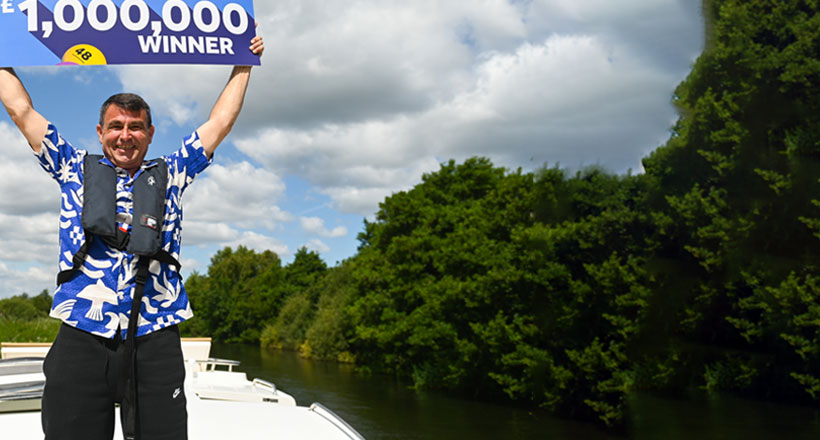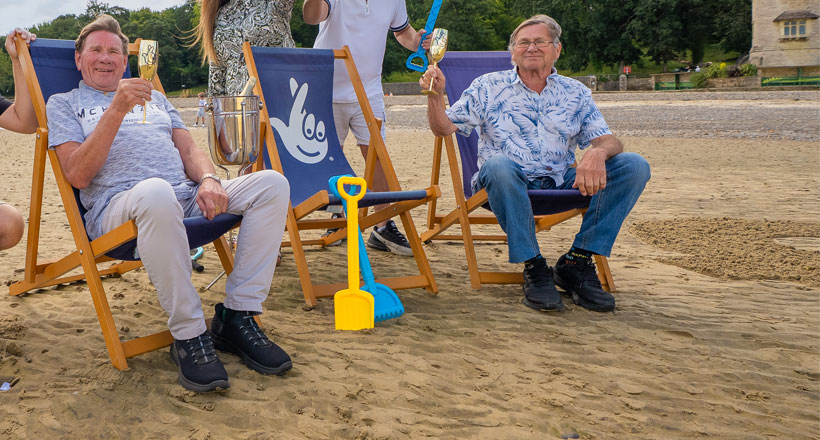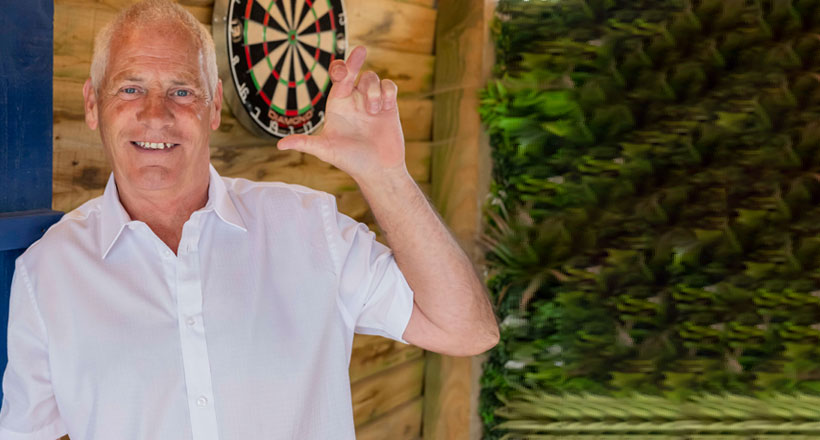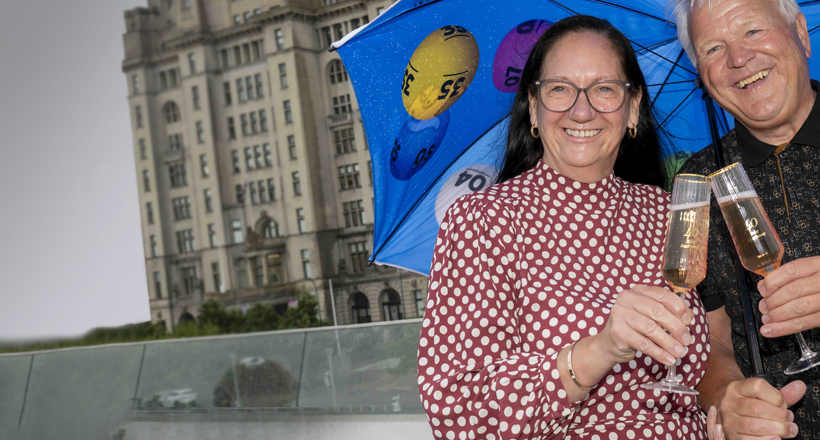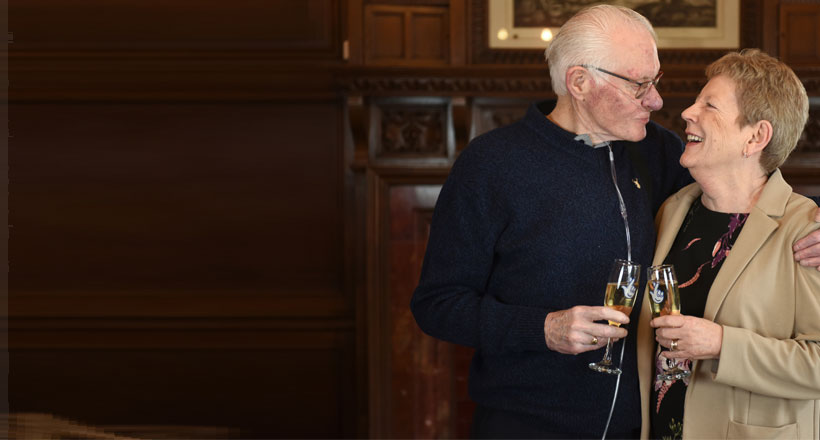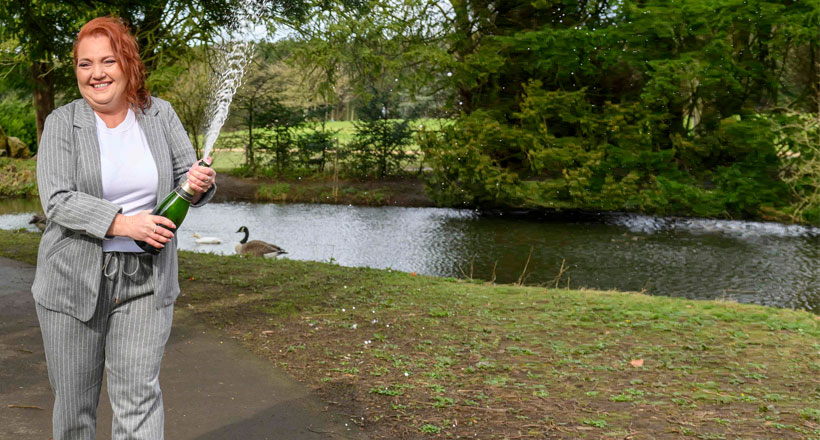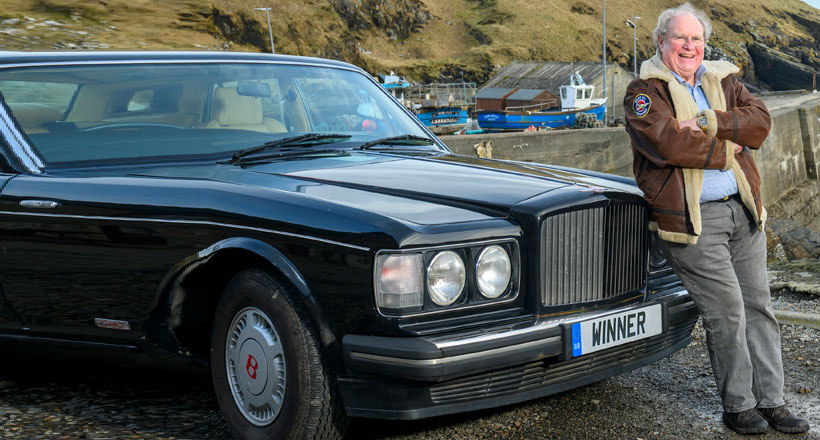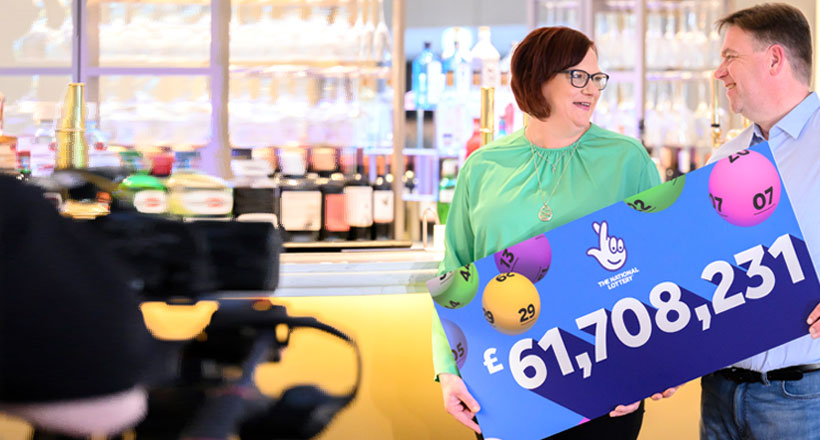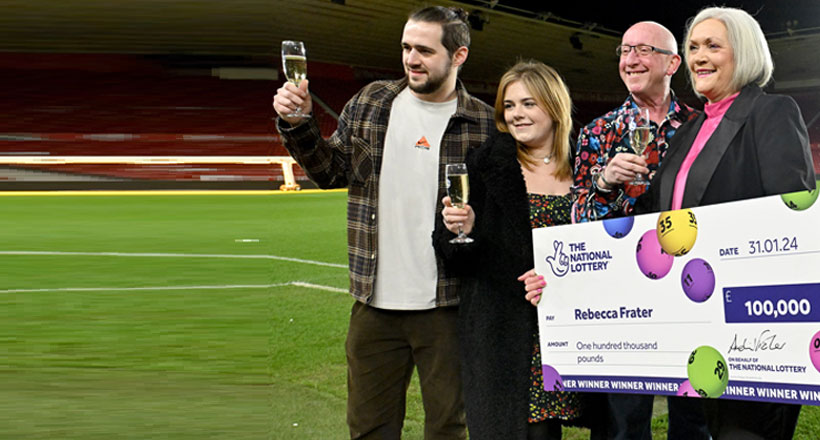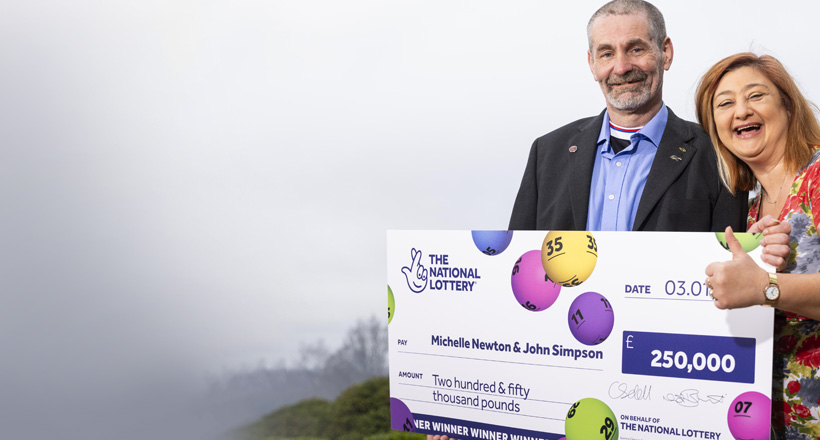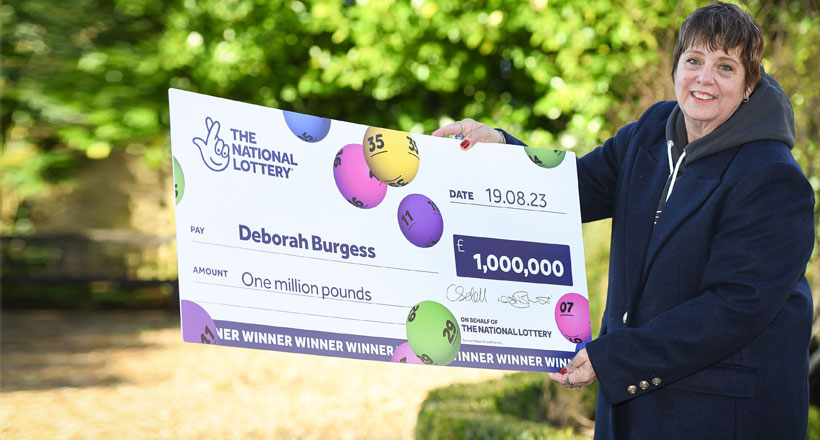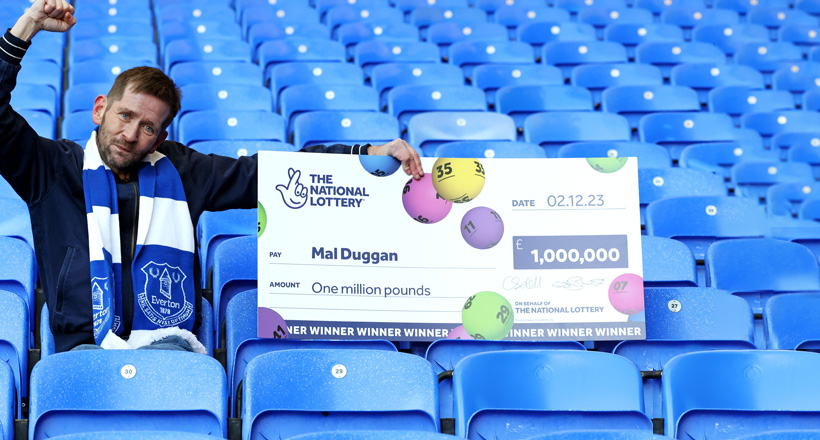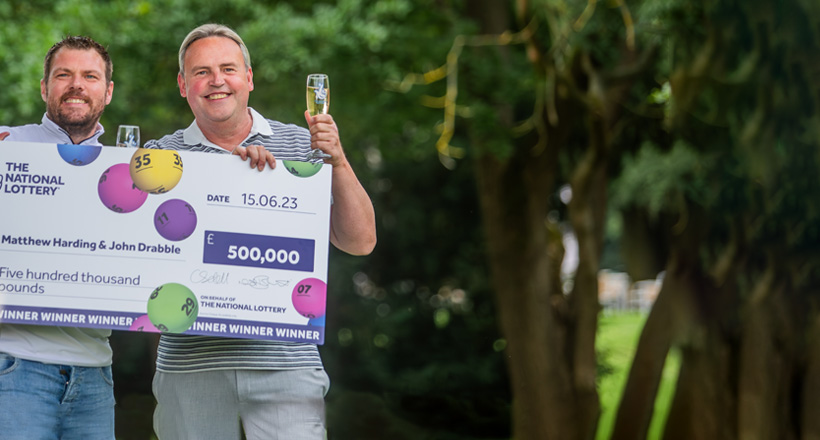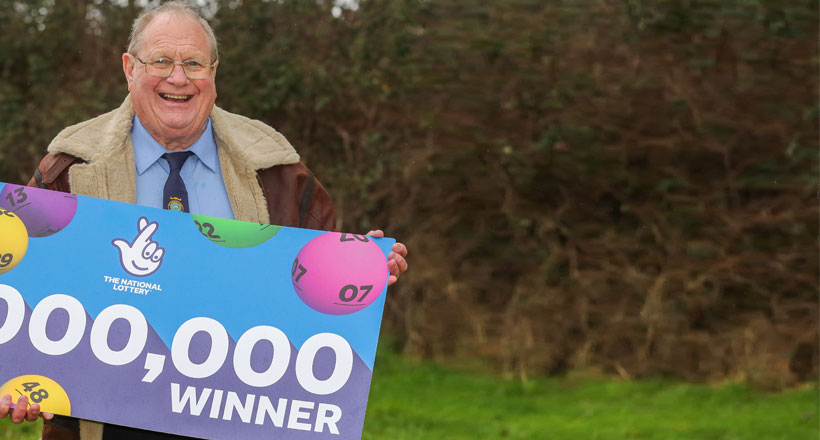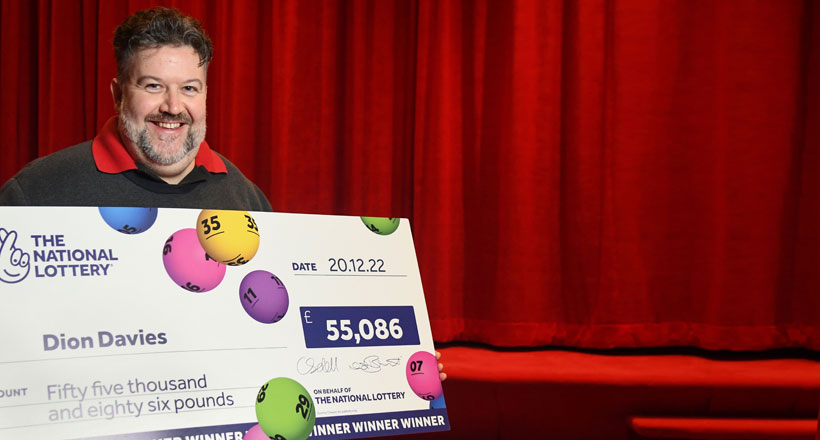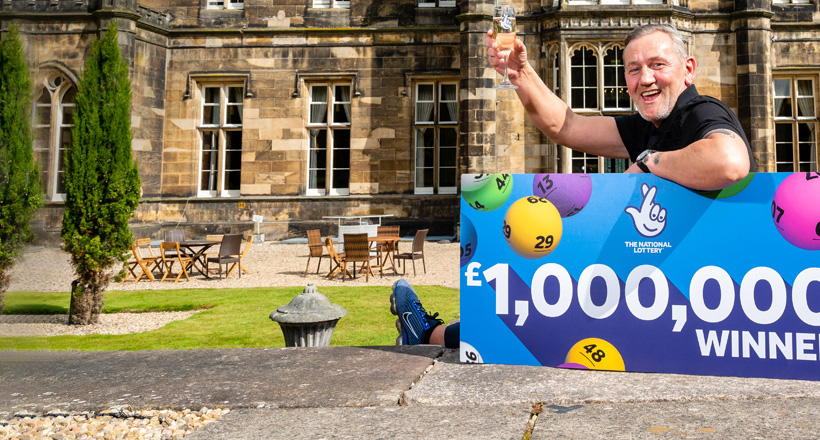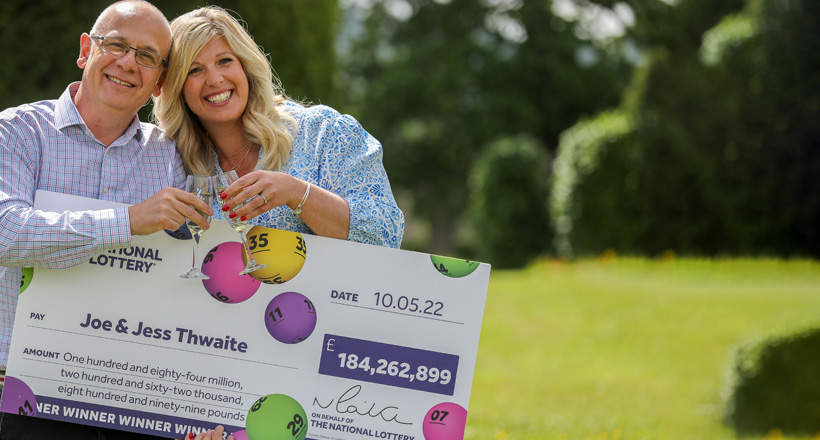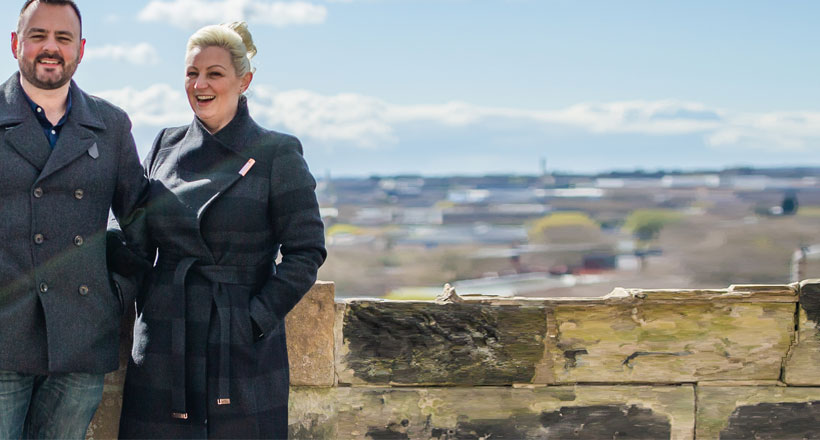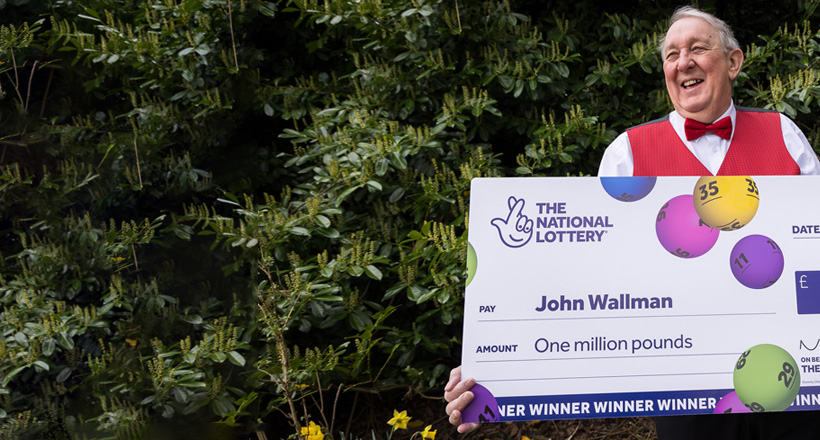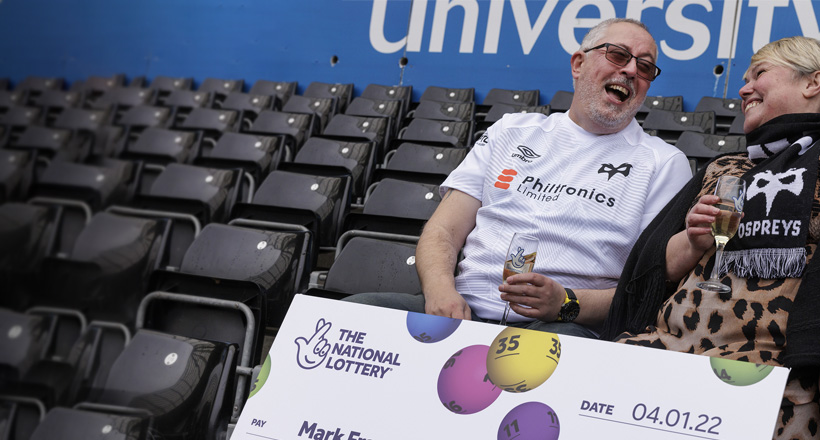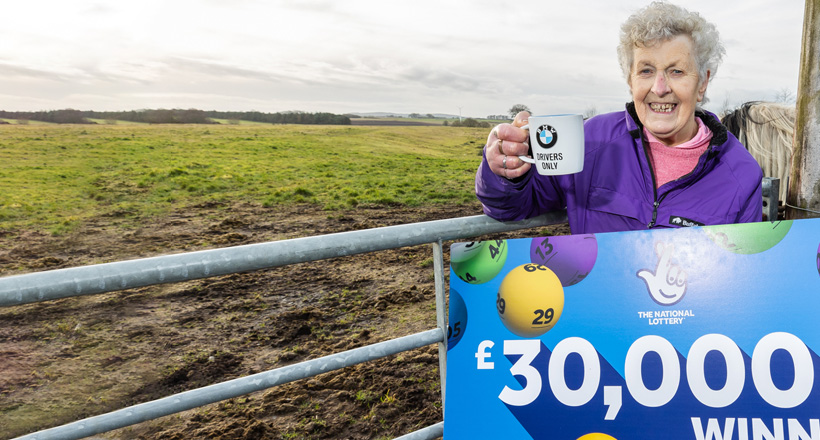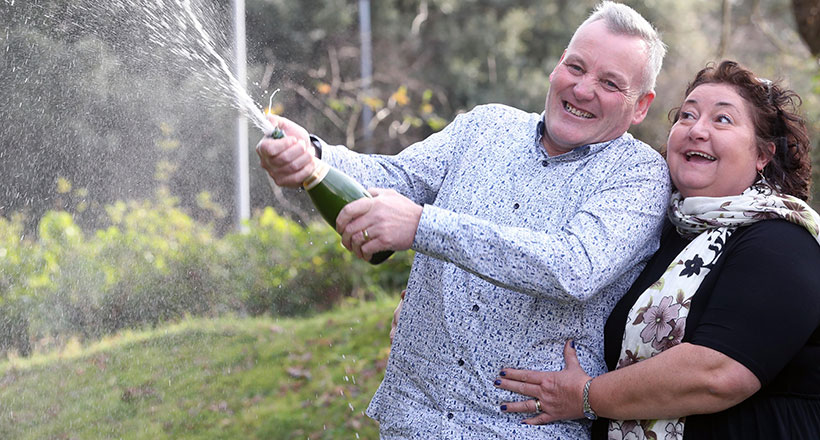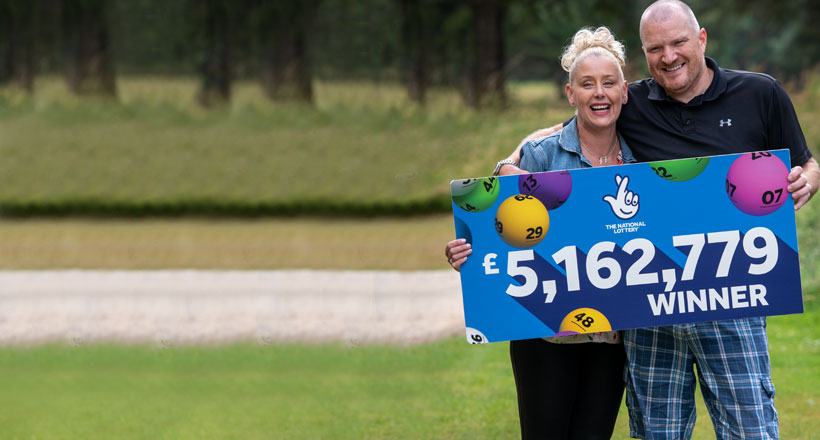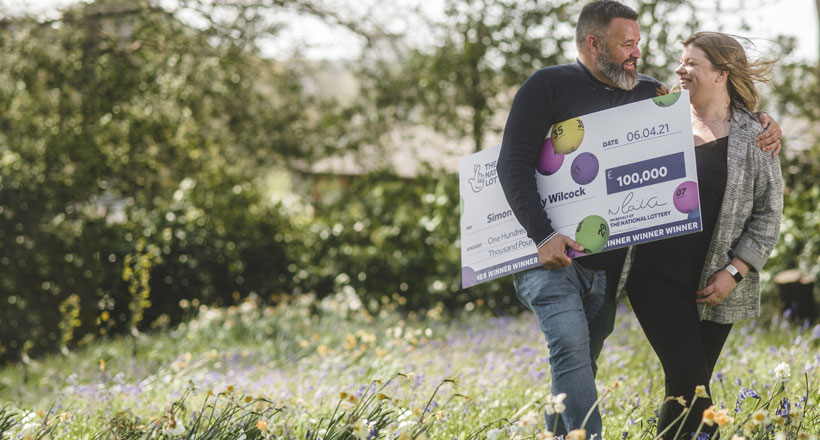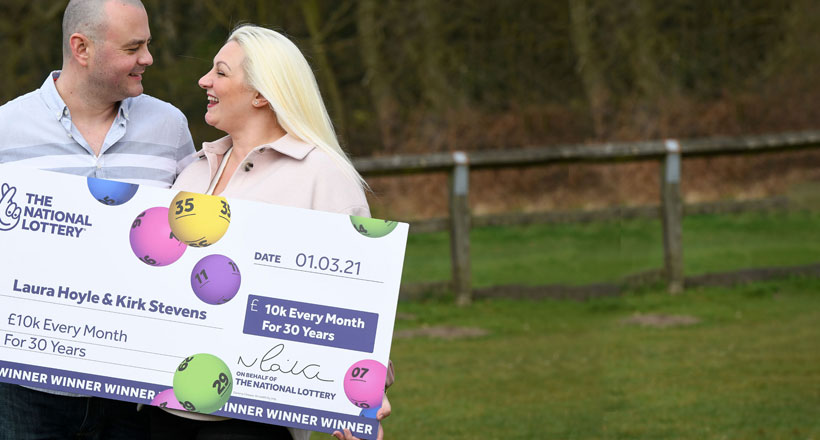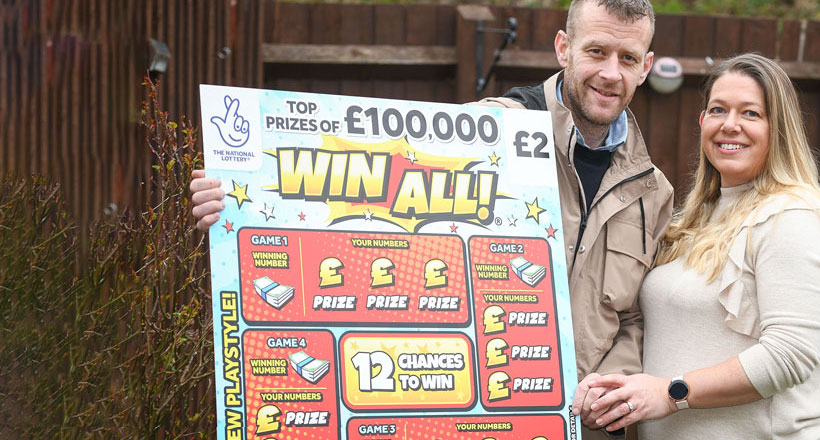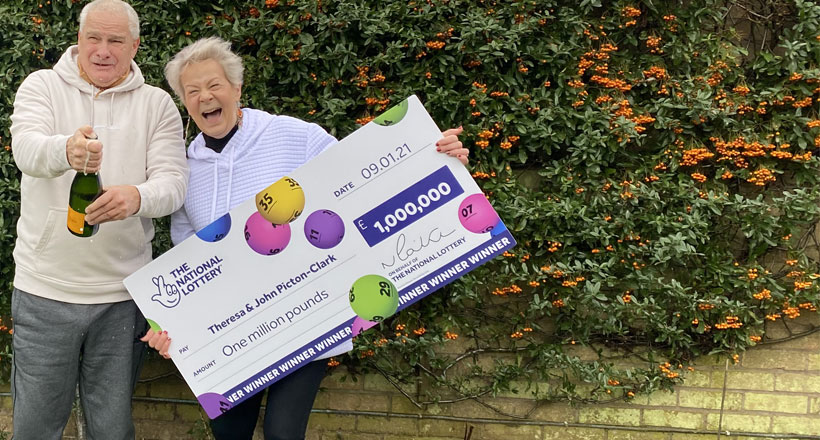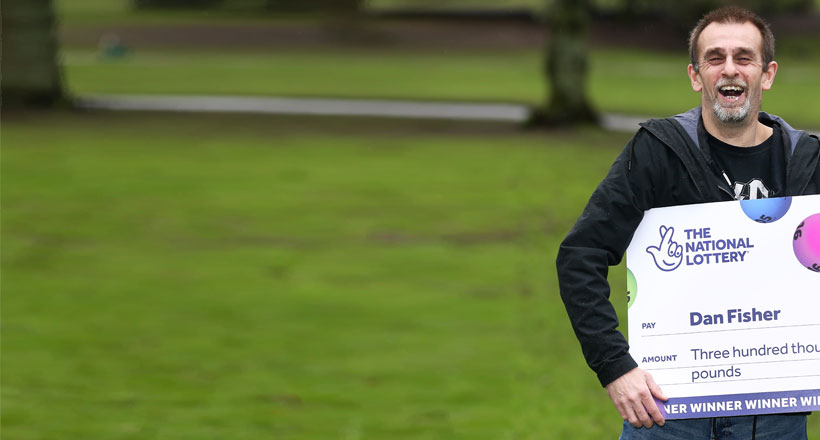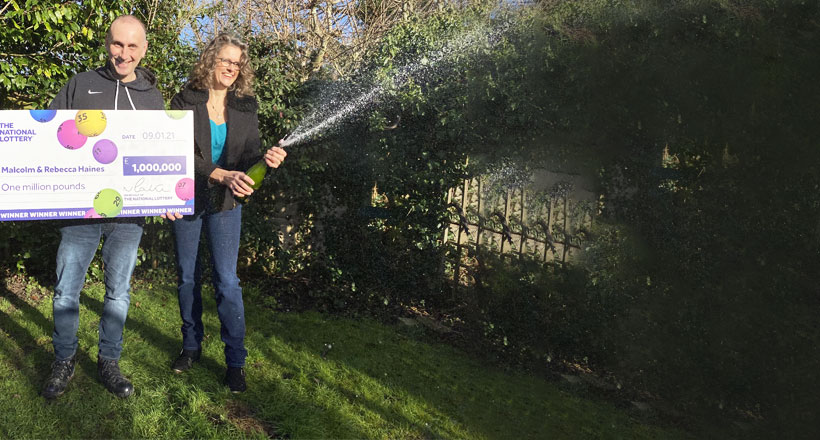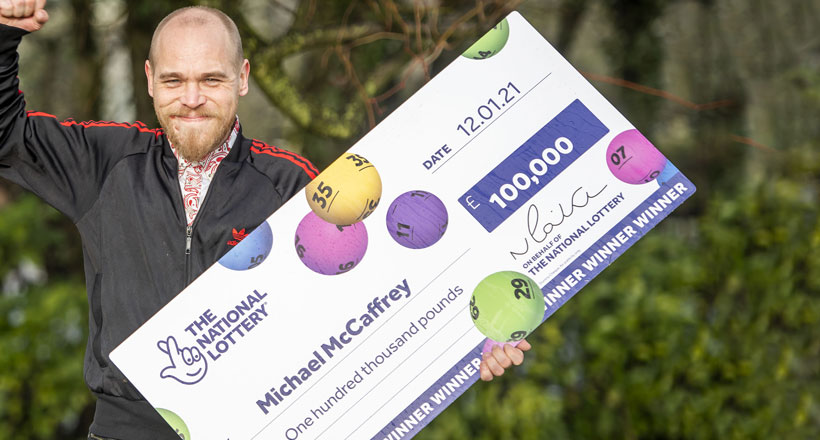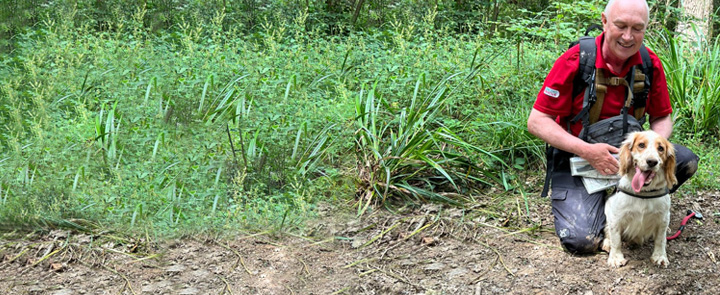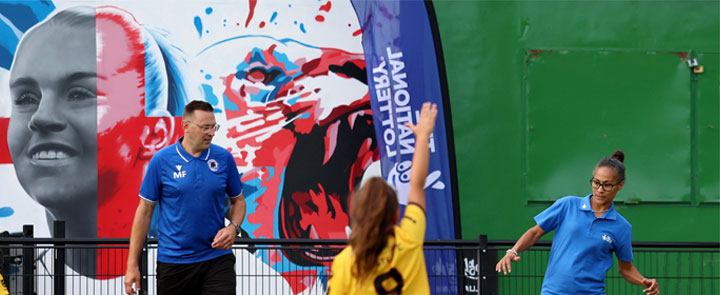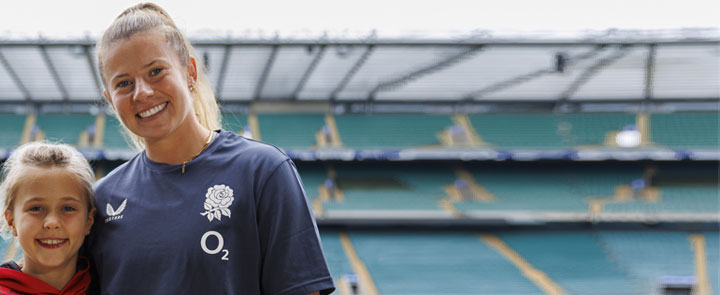Brand Name
Changing Lives
Every Day
Did You Know? Players Like You Have Raised...
Calculating...
(and counting) this week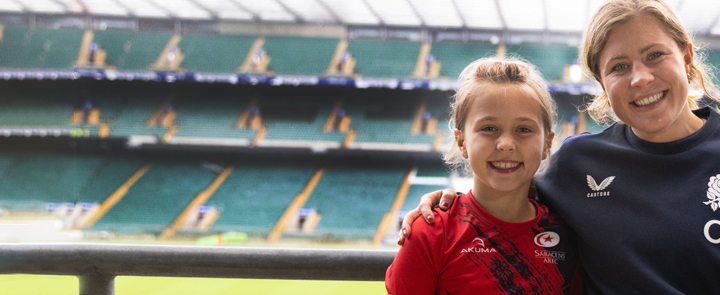
Good Cause story - Audrey ‘tackles’ the Red Roses at Twickenham
Women’s Rugby World Cup 2025

Winner story - Winners are trimmers at Haircuts4Homeless

Winner story - High seas and high teas for Angela and Steve

Winner story - Ellie and Karl’s ‘grape’ big EuroMillions win

Winner story - Pub managers in high spirits thanks to big win

Winner story - £1Million win helps Terry and Kay explore the world

Winner story - Holly and Ben plan wedding a year after £1Million win

Winner story - ‘Double bubbles’ in Lanarkshire for two Set For Life winners

Winner story - £1Million winners find a ‘plaice’ to help out
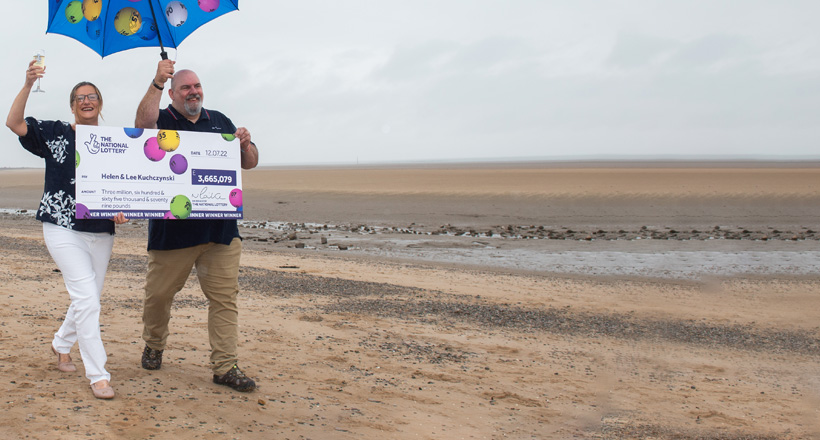
Winner story - £3.6Million win gives couple a birthday to remember

Winner story - Grimsby couple hook a £1Million EuroMillions prize

Winner story - Pals Marion and Michael split £1Million Lotto prize

Winner story - Winners’ woolly mules help Mini Donks’ mission

Winner story - Fright at the museum for Set For Life winners

Winner story - Double win: 250Thousand plus a date with his girlfriend!
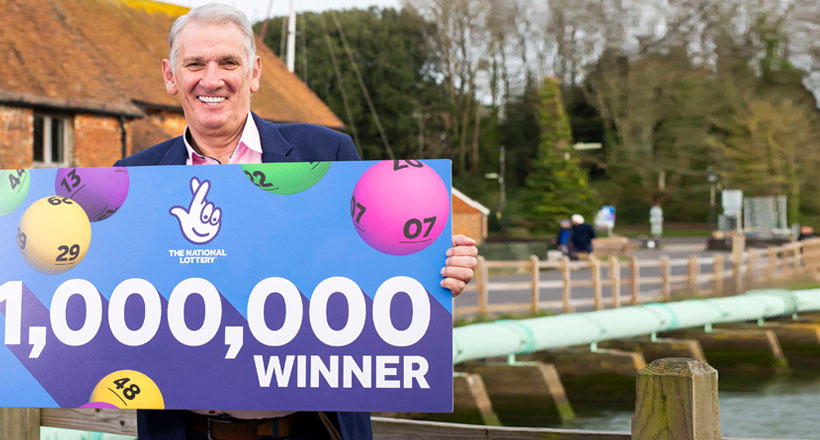
Winner story - Delivery driver wins ‘wheely’ big
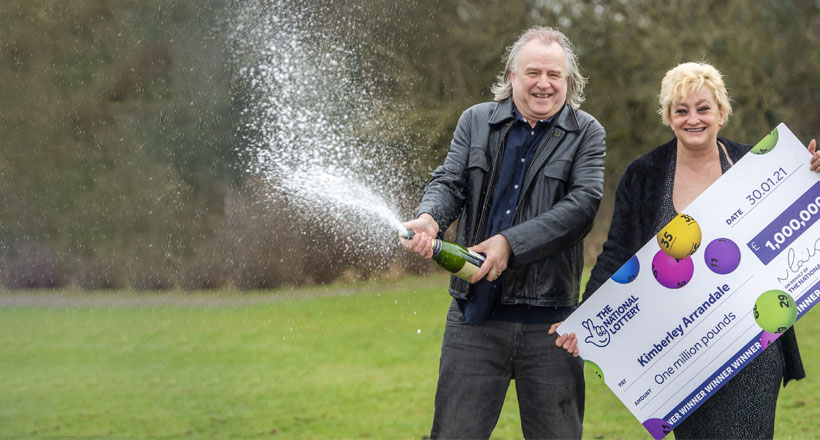
Winner story - £1Million Lotto win is ‘paws-itivley’ amazing
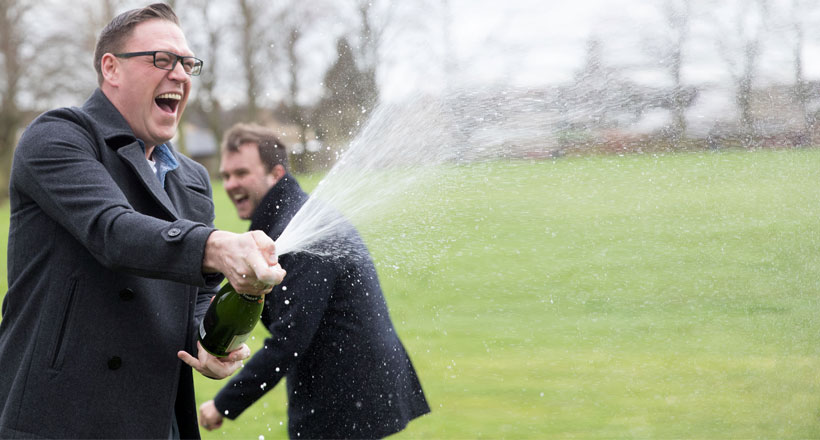
Winner story - Gareth wins £500Thousand as puppy spends a penny
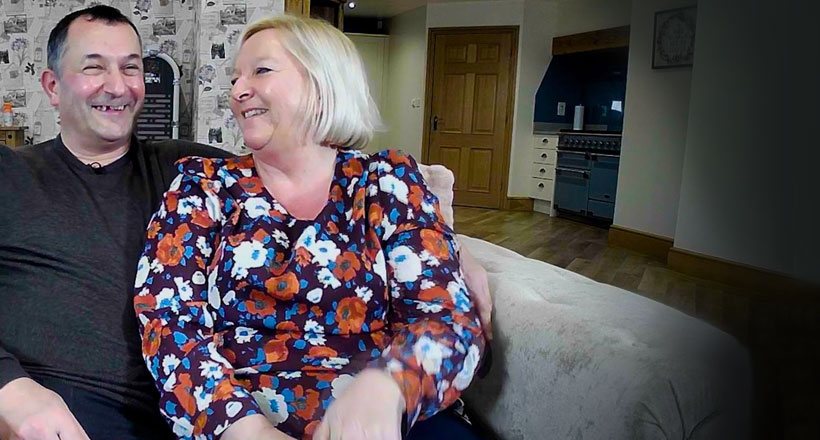
Winner story - £1.2Million Lotto win is a family affair for Susan
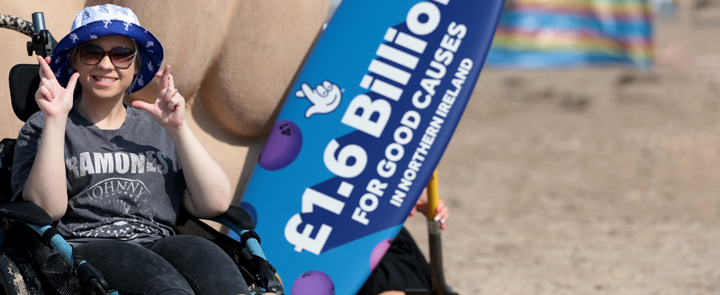
Good Cause story - Sun, sand and £1.6Billion for good causes
Giant sand sculpture celebrations in Northern Ireland

Good Cause story - How you’re helping ‘treasured’ artwork stay in UK
Rare sculpture to be saved

Good Cause story - Giving Northern Irish shows room to grow
Edinburgh Festival Fringe 2025

Good Cause story - Urban gardening gave Cassie room to grow
National Allotments Week 2025
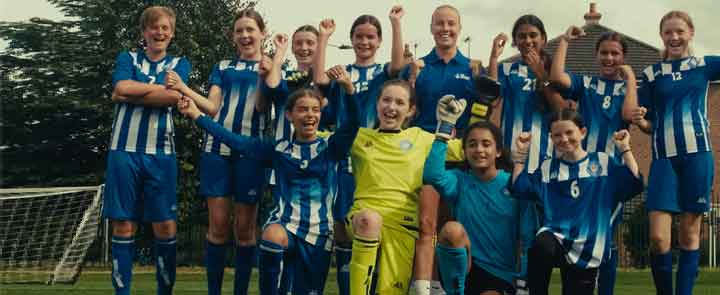
Good Cause story - Lionesses’ victory inspires grassroots clubs
Summer of Sport 2025
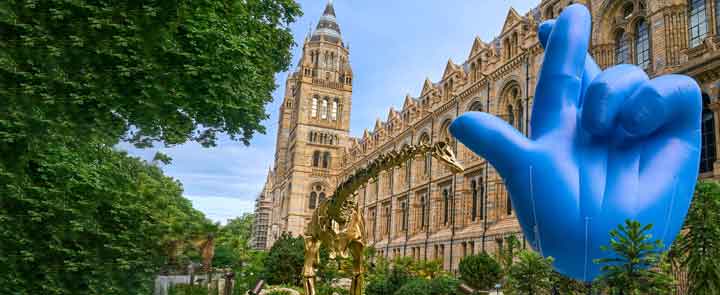
Good Cause story - Crossed fingers celebrate UK’s summer of hope
Sun, Oasis and sporting success

Good Cause story - Grassroots football on Corrie’s famous cobbles
The Big Football Day 2025

Good Cause story - Protect small venues or lose ‘the next Oasis’
The Forum: where it all started

Good Cause story - Lorraine’s smashing it on the tennis court
Celebrating Wimbledon 2025

Good Cause story - Prestigious honours for National Lottery-backed films
New talent in the spotlight

Good Cause story - Oh boy, fatherhood has changed Alamgir’s life
Celebrating Father’s Day 2025

Good Cause story - Get free taste of bittersweet film ‘Lollipop'
Free tickets to new UK drama

Good Cause story - Bee Pedal Ready gets women buzzing about bikes
World Bicycle Day 2025

Good Cause story - Bernard’s secret VE Day telegram goes on display
Commemorating VE Day 2025

Good Cause story - How Aysha uses ‘flour power’ to change lives
Bakers turn dough into whoa!

Good Cause story - Mail Rail role gets Matthew’s stamp of approval
Life below London’s streets

Good Cause story - Giving a young Queen fan rock solid support
World Autism Awareness Day
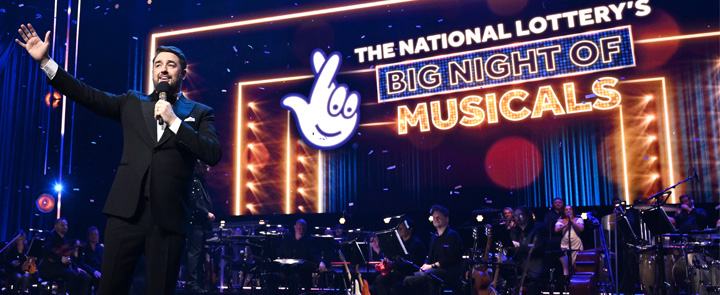
Good Cause story - Watch our Big Night of Musicals on BBC 1
Musical theatre spectacular returns

Good Cause story - Paula’s mission to put deaf actors centre stage
Sign Language Week 2025
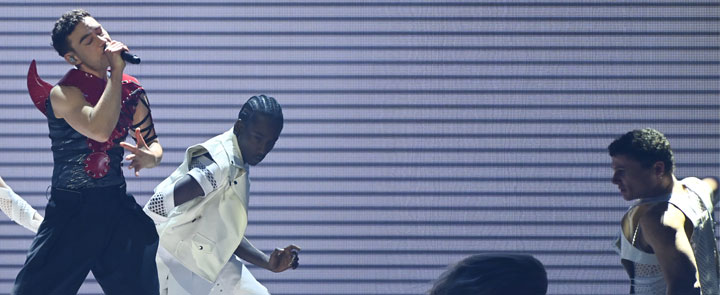
Good Cause story - Stars shine at National Lottery’s Big Bash
The National Lottery’s Big Bash

Good Cause story - Filmmaker spotlights forgotten Black sporting hero
Remembering Arthur Wharton

Good Cause story - Where to have a spook-tacular Halloween
Celebrating Halloween 2024

Good Cause story - How Diwali brings communities together
Celebrating Diwali 2024

Good Cause story - Jonathan trades slam dunks for high jumps
Paris 2024 Paralympic Games
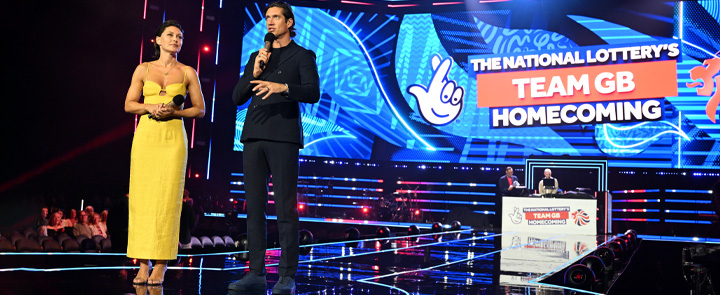
Good Cause story - The National Lottery’s Team GB Homecoming
Partying with Paris 2024 stars

Good Cause story - Josh Kerr’s silver inspires new Scottish stars
Supporting athletes in Scotland

Good Cause story - Emma Finucane gets Welsh wheels spinning
Getting new cyclists pumped up

Good Cause story - From Peckham to Paris: Imani-Lara is on track
Going for gold at Paris 2024

Good Cause story - Good talks and golf help swimmers go for gold
Pool stars at Paris 2024

Good Cause story - Chantelle’s fight for her Olympic dream
Team GB boxer ready for Paris

Good Cause story - The National Lottery’s Team GB Homecoming
Partying with Paris 2024 stars

Good Cause story - How Buglife got Emily buzzing about bees
How you’re helping protect bees

Good Cause story - JJ Chalmers starts search for our unsung heroes
National Lottery Game Changers

Good Cause story - Meet steampunk warriors at Glastonbury 2024
Supporting British-Asian art

Good Cause story - Helping top athletes give back to communities
£1Million fund supports social impact

Good Cause story - Talking food and footy with Lioness Ellen White
The Table Manners podcast

Good Cause story - Helping Oxford’s queer community find its feet
The evolution of Oxford Pride
Every time you play, the UK wins
Find Projects Near You
Every postcode in the country has benefitted from National Lottery support. See what's been happening in your community.
Where The Money Goes
From scout huts to Olympic champions, we provide funding to a huge variety of projects. Over 650,000 and counting...
Find out moreApplying For Funding
Across arts, sports, heritage, charity, voluntary, health, education and environmental sectors, we're open to applications.


